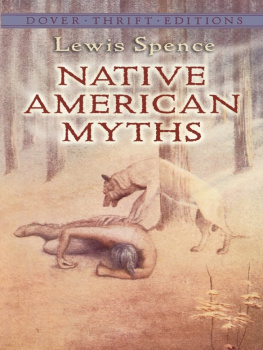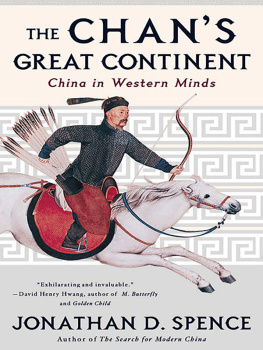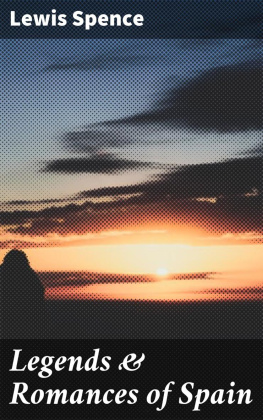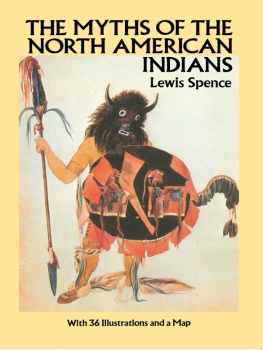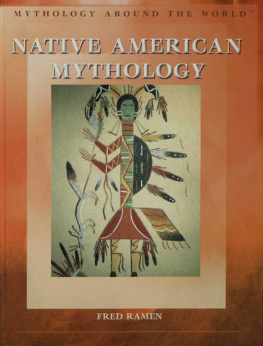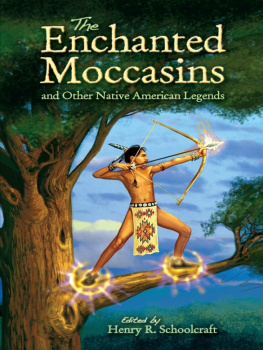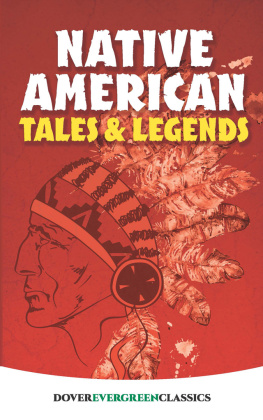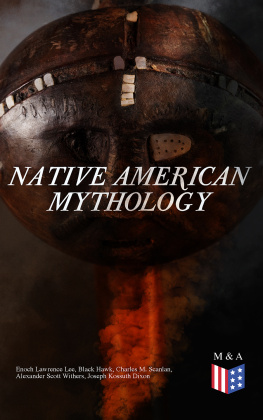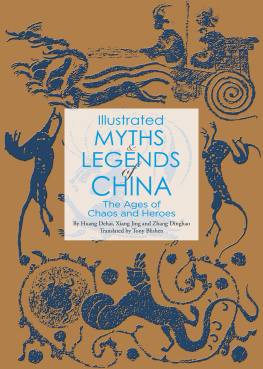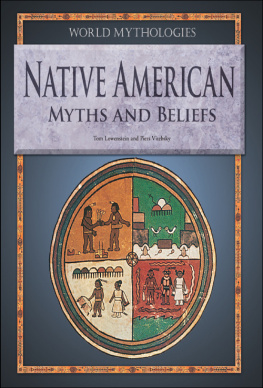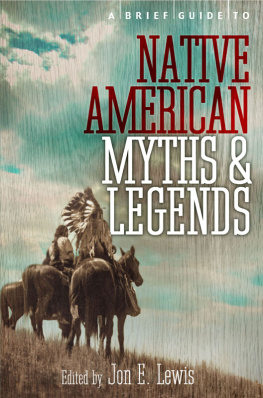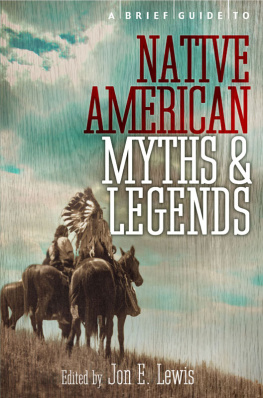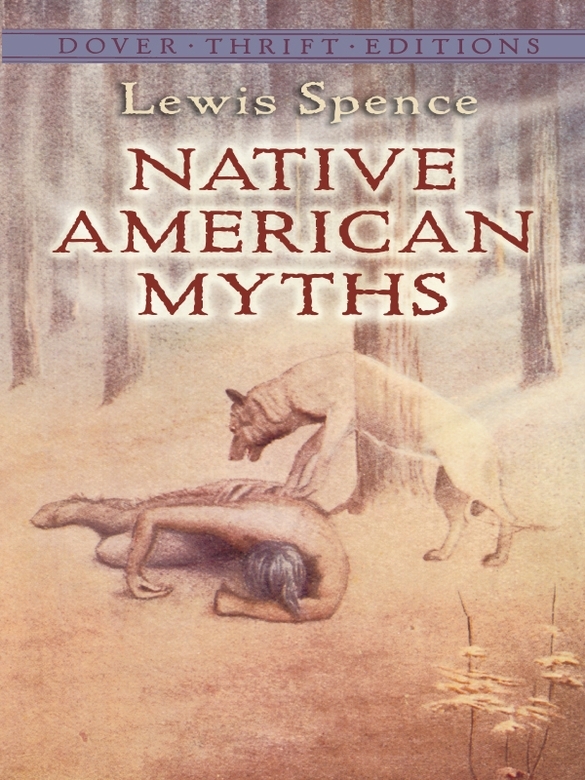GLOOSKAP AND MALSUM
THE ALGONQUIN Indians have perhaps a more extensive mythology than the majority of Indian peoples, and as they have been known to civilization or several centuries their myths have the advantage of having been thoroughly examined.
One of the most interesting figures in their pantheon is Glooskap, which means The Liar; but so far from an affront being intended to deity by this appellation, it was bestowed as a compliment to his craftiness, cunning being regarded as one of the virtues by all savage peoples.
Glooskap and is brother Malsum, the Wolf, were twins, and from this we may infer that they were the opposites of a dualistic system, Glooskap standing for what seems good to the savage, and Malsum for all that was bad. Their mother died at their birth, and out of her body Glooskap formed the sun and moon, animals, fishes, and the human race, while the malicious Malsum made mountains, valleys, serpents, and every manner of thing which he considered would inconvenience the race of men.
Each of the brothers possessed a secret as to what would kill him, as do many other beings in myth and fairy story, notably Llew Llaw Gyffes in Welsh romance.
Malsum asked Glooskap in what manner he could be killed, and the elder brother, to try his sincerity, replied that the only way in which his life could be taken was by the touch of an owls featheror, as some variants of the myth say, by that of a flowering rush. Malsum in his turn confided to Glooskap that he could only perish by a blow from a fern-root. The malicious Wolf, taking his bow, brought down an owl, and while Glooskap slept struck him with a feather plucked from its wing. Glooskap immediately expired, but to Malsums chagrin came to life again. This tale is surprisingly reminiscent of the Scandinavian myth of Balder, who would only die if struck by a sprig of mistletoe by his brother Hodur. Like Baldur, Glooskap is a sun-god, as is well proved by the circumstance that when he dies he does not fail to revive.
But Malsum resolved to learn his brothers secret and to destroy him at the first opportunity. Glooskap had told him subsequently to his first attempt that only a pine-root could kill him, and with this Malsum struck him while he slept as before, but Glooskap, rising up and laughing, drove Malsum into the forest, and seated himself by a stream, where he murmured, as if musing to himself: Only a flowering rush can kill me. Now he said this because he knew that Quah-beet, the Great Beaver, was hidden among the rushes on the bank of the stream and would hear every word he uttered. The Beaver went at once to Malsum and told him what he regarded as is brothers vital secret. The wicked Malsum was so glad that he promised to give the Beaver whatever he might ask for. But when the beast asked for wings like a pigeon Malsum burst into mocking laughter and cried: Ho, you with the tail like a file, what need have you of wings? At this the Beaver was wroth, and, going to Glooskap, made a clean breast of what he had done. Glooskap, now thoroughly infuriated, dug up a fern-root, and, rushing into the recesses of the forest, sought out his treacherous brother and with a blow of the fatal plant struck him dead.
SCANDINAVIAN ANALOGIES
But although Malsum was slain he subsequently appears in the Algonquian myth as Lox, or Loki, the chief of the wolves, a mischievous and restless spirit. In his account of the Algonquian mythology Charles Godfrey Leland appears to think that the entire system has been sophisticated by Norse mythology filtering through the Eskimo. Although the probabilities are against such a theory, there are many points in common between the two systems, as we shall see later, and among them few are more striking than the fact that the Scandinavian and Algonquian evil influences possess one and the same name.
When Glooskap had completed the world he made man and the smaller supernatural beings, such as fairies and dwarfs. He formed man from the trunk of an ash-tree, and the elves from its bark. Like Odin, he trained two birds to bring him the news of the world, but their absences were so prolonged that he selected a black and a white wolf as his attendants. He waged a strenuous and exterminating warfare on the evil monsters which then infested the world, and on the sorcerers and witches who were harmful to man. He levelled the hills and restrained the forces of nature in his mighty struggles, in which he towered to giant stature, his head and shoulders rising high above the clouds. Yet in his dealings with men he was gentle and quietly humorous, not to say ingenuous.
On one occasion he sought out a giant sorcerer named Win-pe, one of the most powerful of the evil influences then dwelling upon the earth. Win-pe shot upward till his head was above the tallest pine of the forest, but Glooskap, with a god-like laugh, grew till his head reached the stars, and tapped the wizard gently with the butt of his bow, so that he fell dead at his feet.
But although he exterminated many monsters and placed a check upon the advance of the forces of evil, Glooskap did not find that the race of men grew any better or wiser. In fact, the more he accomplished on their behalf the worse they became, until at last they reached such a pitch of evil conduct that the god resolved to quit the world altogether. But, with a feeling of consideration still for the beings he had created, he announced that within the next seven years he would grant to all and sundry any request they might make. A great many people were desirous of profiting by this offer, but it was with the utmost difficulty that they could discover where Glooskap was. Those who did find him and who chose injudiciously were severely punished, while those whose desires were reasonable were substantially rewarded.
GLOOSKAPS GIFTS
Four Indians who went to Glooskaps abode found it a place of magical delights, a land fairer than the mind could conceive. Asked by the god what had brought them thither, one replied that his heart was evil and that anger had made him its slave, but that he wished to be meek and pious. The second, a poor man, desired to be rich, and the third, who was of low estate and despised by the folk of his tribe, wished to be universally honoured and respected. The fourth was a vain man, conscious of his good looks, whose appearance was eloquent of conceit. Although he was tall, he had stuffed fur into his moccasins to make him appear still taller, and his wish was that he might become bigger than any man of his tribe and that he might live for ages.
Glooskap drew four small boxes from his medicine-bag and gave one to each, desiring that they should not open them until they reached home. When the first three arrived at their respective lodges each opened his box, and found therein an unguent of great fragrance and richness, with which he rubbed himself. The wicked man became meek and patient, the poor man speedily grew wealthy, and the despised man became stately and respected. But the conceited man had stopped on his way home in a clearing in the woods, and, taking out his box, had anointed himself with the ointment it contained. His wish also was granted, but not exactly in the manner he expected, for he was changed into a pine-tree, the first of the species, and the tallest tree of the forest at that.
GLOOSKAP AND THE BABY
Glooskap, having conquered the Kewawkqu, a race of giants and magicians, and the Medecolin, who were cunning sorcerers, and Pamola, a wicked spirit of the night, besides hosts of fiends, goblins, cannibals, and witches, felt himself great indeed, and boasted to a certain woman that there was nothing left for him to subdue.

